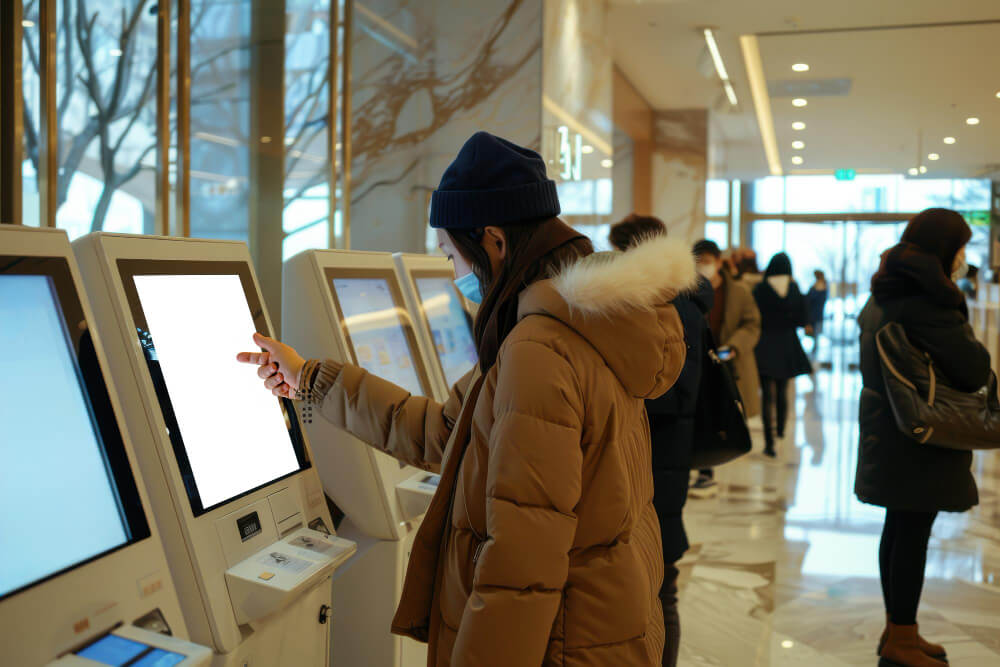Tech innovations are the spearhead that runs growth and efficiency in the modern world. In the event world, various innovations have come forward that have changed the way organizers manage and run their events. Now that 2025 has graced us with its new dawn, it also brought with it fresh new demands for innovative solutions. These solutions in demand are some of the most cutting-edge and game-changing event technologies that can easily change your perception and views on how events are managed, run, and made fun.
In this blog, we discuss it all and won’t waste time in deep-diving into these 5 game-changing event tech for planners that lighten their burdens and make attendees feel welcomed.
Table of Contents
AI-Powered Event Innovation
Our first game-changing event technology had to be AI and it’s limitless possibilities. As the fusion of AI deepens in the event industry, its impact can be seen in the approach to tasks of event planners and organizers. Let’s dip into it:
- Automation of repetitive and tedious tasks- When it comes to event planning there are a lot of tasks and processes that need to be repeated or done continuously. For instance, data entry, registration, communications, etc. Through the integration of AI, these exceptionally time-consuming and boring tasks can be easily automated and helmed by AI software. Now because humans are capable of errors, AI proved itself to be error-proof as well, promising that data and details are precisely organized.
- Applications in attendee management- With knowledge and, awareness, you can easily manage, organize, and take care of your attendees and their experience in your event. Now because of AI, managing attendees in real-time through their behavior and preference analysis has become a go-to management strategy for event planners.
- Scheduling optimization- AIs have their own smart learning capabilities and algorithms through which a lot of things can be unburdened from the shoulders of organizers. These algorithms can enhance the scheduling of your event sessions and programs by decoding various factors like venue availability, speaker preferences, and overall activity patterns. This feature is quite useful in event management as it helps organizers make sure that everything runs smoothly and that timing is maintained in such a way that maximizes attendance.
Virtual And Augmented Reality Innovation
VR and AR have also become quite the game-changing event technology used in modern-day event planning by organizers.

Virtual reality is literally a reality-altering innovation that completely covers the users in immersive and virtual environments, via complete headsets. This technology provides a highly different perspective to attendees by allowing them to enjoy and go through events in a simulated space.
Augmented reality on the other hand displays digital content in the real world, adding interactive and playable digital elements into the physical atmosphere around us. Using smartphones or glasses, participants can view content that organizers will for them to experience at their event venue.
Applications of VR and AR in Events
- Virtual venue tours- Through the application of VR, you can have your potential attendees explore your event venue beforehand. These VR tours are highly interesting and immersive for users as they help in viewing the entire layout of the venue and different booths within the event which leads to a positive experience for them and all this without needing anyone physically present at the venue or during the event. This technology comes in handy when handling events at multiple locations during the same period or to save on the cost of traveling and accommodation.
- Interactive booths- AR can change your event arrangement to a whole new level by fusing your traditional booths with interactive capabilities. This allows for showcasing products in 3D or displaying presentations in a new style, which not only allows your participants to engage and interact with your events deeply but also be in awe at the same time.
- Training and education- For events that are about training and education like medical conferences, and police or military training, where hands-on experience is necessary, VR can be used to mimic entire procedures and scenes related to surgery and crime. This allows users to practice and understand without imposing any risk on themselves and be in an environment free from trouble or stress. This feature of VR helps in not just learning but also skill development via realistic impressions.
- Adaptability for hybrid events- With hybrid formats seeping into the event industry as the new normal, VR and AR give solutions that support both in-person and virtual participants. Ensuring that all attendees get the full experience and value of the event they have chosen to give their time to.
Real-Time Data Analytics Platforms
Data is a big topic and for the right reason too, it forms the foundation and base for successful implementation and strategy curation this 2025. Real-time analytics is another most sought-after game-changing event tech for organizers due to:

Key Features of Real-Time Data Analytics Platforms
- Tracking attendee engagement – Tracking attendee engagement metrics has never been more easier using real-time analytics platforms. Throughout an event, you can use this feature of your platform to capture data of attendees on session time, interactions, drop-off rates, etc. This way organizers can easily decode what segment of their event captivated the attendees most and what segment needs more work and attention.
- Providing insights into overall event performance – Complex dashboards collect and segment data from multiple sources, providing an eagle-eye view of your event performance. With this feature, organizers can dive into the metrics of their event from registration numbers to feedback scores.
- Predictive analytics- Prediction using statistics of previous or historical data is one of the most advanced features of analytics platforms. By going through previous events data, these tools can predict the attendance turnout, fiscal requirements, and possible challenges that might get in the way during the planning and execution phase of an event.
Contactless Check-In Solutions
Event organizers are increasingly turning to contactless check-in methods to make things smoother and safer for everyone involved. These tools help smoothen the process like butter by reducing queue lines and creating a better entry experience overall.

Popular Contactless Check-In Options
- Using QR Codes- QR codes are simple and effective. When people sign up for an event, they’re sent a unique QR code, usually through email or an app. At the venue, they just scan the code at the entrance of the event check-in. This eliminates the need for paper tickets and speeds up the entry process. QR codes can also be used to give attendees access to schedules, session materials, or other event content.
- Facial Recognition- This option takes things up a notch. Facial recognition allows attendees to check in by simply showing their faces. During registration, their photo is added to the system, so when they arrive at the event, the system recognizes them and grants entry. It’s quick, secure, and cuts down on the need for physical interaction. Plus, it’s a great way to prevent unauthorized access.
- Event Apps- Event-specific apps or mobile event apps are another popular option. These apps let attendees handle everything from registration to updates right on their phones. They also often include check-in features, so participants can use the app to scan in when they arrive. Some apps even send notifications to keep attendees updated on schedule changes or reminders about upcoming sessions, making the overall experience much more organized.
Contactless check-ins aren’t just a nice-to-have feature anymore. They’re becoming one of the best game-changing event tech for planners which in turn is transforming into a necessity for events of all sizes. By making entry faster and more secure, they help create a smooth start to any event while showing attendees that their time and safety are valued.
Advanced Event Streaming Solutions
With hybrid events becoming a standard, streaming solutions are now a must-have for organizers looking to connect with both in-person and virtual audiences. These tools help make events accessible to everyone, no matter where they’re tuning in from.
Key Features of Advanced Streaming Tools

Crystal-Clear Video Quality- At the heart of any great streaming platform is its ability to deliver smooth, high-quality video. Many modern systems use adaptive bitrate streaming, which adjusts the video quality automatically based on the viewer’s internet connection. This ensures that attendees can enjoy uninterrupted content, even if their connection isn’t perfect.
Interactive Chat Options- To keep virtual audiences engaged, platforms often include live chat rooms. These features let attendees ask questions, share ideas, and connect with others during the event. Organizers can also assign moderators to manage discussions and ensure that important questions reach the speakers. It’s a great way to build a sense of community, even when participants aren’t in the same room.
Broadcasting Across Platforms- Many streaming tools allow events to be shared on multiple platforms at once, such as YouTube, Facebook Live, and LinkedIn. This expands the event’s reach and helps organizers connect with diverse audiences. By broadcasting on various channels, events can attract more participants and maximize engagement.
On-Demand Access- Another useful feature is the ability to offer recorded sessions after the event ends. This ensures that people who missed a live session can catch up later. It’s also a great way to extend the event’s impact and give attendees more flexibility in how they participate.
Benefits for Planners
- Increased inclusivity- Hybrid events make it easier for everyone to join in, even if they can’t be there in person. Whether it’s due to travel limitations, health issues, or other challenges, people can still fully take part in events. This approach helps create a sense of community and connection for all attendees, no matter how they choose to participate or from where.
- Flexibility in event design- Thanks to modern streaming technology, event planners have more freedom to get creative with their designs. They can mix in-person sessions with virtual elements, building engaging agendas that suit different audience needs. This opens the door to fresh ideas, like panel discussions featuring both live and remote speakers or workshops that pair hands-on activities with virtual demos.
- Cost-effectiveness- Although advanced streaming solutions might require an upfront investment, they often save money over time. Cutting back on extensive travel and physical materials for a bigger audience allows organizers to use their resources more effectively while still offering top-notch experiences.
Conclusion
By adopting these 5 game-changing event technologies, event planners and organizers can not only simplify their processes but also create striking experiences that leave a positive and repute-boosting impact on the attendees’ minds. So make sure to take your events to the next level by exploring and implementing these innovations today and staying ahead in the competitive world of event organizing.




